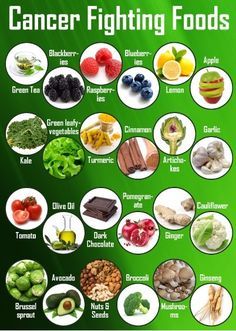- You are here:
- Home »
- Blog »
- Uncategorized »
- Cancer: Are There Any Ways To Prevent It?
Cancer: Are There Any Ways To Prevent It?

According to Cancer Research, four out of ten cases of cancer are preventable with simple lifestyle changes being made
In 2015, the World Health Organization (WHO) reported that cancer had become one of the world’s most fatal diseases. In 2015 alone, cancer was responsible for the deaths of 8.8 million people, with one in six deaths globally being attributed to cancer. Cancer treatments are improving on a consistent basis, and more people than ever before are beating this disease and living longer. However, that does not change the fact that 38.5 percent of the world’s population will develop cancer at some point during their lifetime. With cancer rates rising each year, an increasing number of people are beginning to wonder whether there is anything that they can do to prevent cancer. The truth is that there is little that can be done to prevent cancer altogether. However, steps can be taken to reduce cancer risk.
If you are concerned about developing cancer and the impact of this disease on your family and personal circumstances, taking out adequate health insurance cover can help. There is a common misconception that when it comes to cancer, it is only physical health care that is required, but that is not the case. People living with cancer can become anxious and depressed or turn to drugs or alcohol for comfort as a result of the disease, which is why choosing insurance that offers cover for mental health issues as well as cancer treatment, like Humana health insurance, could give you the peace of mind that you need. With health insurance in place, if you should go on to develop cancer, despite making lifestyle changes, at least you will know that the cost of any treatment is covered.
According to Cancer Research, four out of ten cases of cancer are preventable with simple lifestyle changes being made. However, you may have heard conflicting reports regarding cancer prevention, with one resource suggesting eating unsmoked bacon as a pose to smoked bacon reduces your cancer risk, while another resource has reported that all bacon increases cancer risk.
The issue is that in many cases, what is known about cancer prevention is still developing, which is why conflicting reports are often made. However, what is known is that your lifestyle does have a direct impact on your chances of developing cancer. That’s why if you are concerned about cancer prevention, making lifestyle changes is something that it is worth learning more about so that you can reduce your cancer risk.
Below is a selection of lifestyle changes that studies have shown may help to reduce lifetime cancer risk.
Follow a healthy, balanced diet
Studies have shown that one of the significant factors that contribute to lifetime cancer risk is food. Stories about the link between certain foods and cancer are often reported in the media, from tomato sauce and canned goods to microwave popcorn and refined sugar. However, there is no ‘hard’ evidence that any food group causes cancer. There is, however, a clear link between processed foods and people who eat high quantities of them going on to develop cancer.
For this reason, it is recommended by healthcare professionals that anyone wanting to reduce their cancer risk follows a healthy and balanced diet. Studies have shown that by basing your diet on plenty of plant-based foods, you can significantly cut your cancer risk. As can eating lighter and leaner by choosing to consume foods that are lower in fat, and consuming plenty of starchy foods, such as bread, rice, and pasta, as well as a selection of fresh meat, fish, and eggs. According to the World Health Organization, limiting your intake of processed meats such as hot dogs, chicken burgers, and beef patties can also help to reduce cancer risk. This is because, as mentioned above, eating large quantities of this meat can significantly increase the risk of developing certain types of cancer.
Monitor your weight & lead a more active life
In western countries like the US and the UK, on average 60 percent of the population weighs more than they should do. Various studies have linked increased cancer risk to being overweight or obese, which is why monitoring your weight is a vital part of taking care of your health. Research has suggested that people who are a healthy weight and have a ‘healthy’ BMI, have a significantly lower risk of developing bowel, breast, kidney, pancreatic, and womb cancer.
It has been reported that people who are physically active and do 150 minutes of activity a week also have a lower cancer risk. It is not known why physical activity reduces cancer risk, but for one reason or another, it does. In addition to helping to control your weight, which in turn reduces cancer risk, people who exercise regularly also tend to have a lower chance of developing both breast and colon cancer.
Don’t smoke
It is no secret that cigarettes significantly increase your risk of developing all kinds of diseases, from COPD to cancer. That’s why if you want to reduce your cancer risk, quitting is a vital step. Smoking has been linked to various types of cancer, including mouth, throat, bladder, cervix, kidney, and pancreas cancer. Chewing tobacco has also been linked to mouth and throat cancer. Even if you don’t smoke, exposure to second-hand smoke from a friend or family member who smokes can also increase your cancer risk.
To cut your cancer risk, stopping using tobacco and tobacco-based products is a crucial step. If you want to limit your risk of developing this awful disease, smoking should not be a habit that you even consider doing, as the risk is so high for you and the people around you.
Reduce your alcohol consumption
Studies have shown that alcohol consumption at any level is a risk factor for various oral cancers. Alcoholic beverages have been classified by the International Agency for the Research of Cancer, as being a ‘Group 1 carcinogen’. 3.6 percent of all cancer cases can be attributed to alcohol, as can 3.5 percent of all cancer-related deaths.
If you do drink alcohol, ensure that you do so in moderation. It is vital that you only drink the recommended weekly amount for your height and weight. Otherwise, you may increase your risk of developing breast, liver, oral, or pancreatic cancer.
The fact is that although there is no guaranteed way that anyone can reduce their lifetime cancer risk, there are steps that can be taken to help make your chance of developing this disease less likely.


